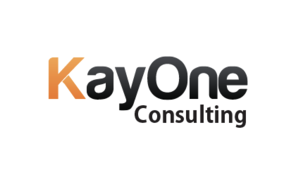How Do Startup Founders Make Money?
Introduction
Starting a business comes with its unique risks and rewards, such as liquidity risk. Also, for many entrepreneurs and business founders, the ultimate goal is to make money. Whether you are still in college or sitting in an office cubicle and contemplating a career change to make more money, the idea of launching or forming the next big company or startup can be pretty appealing.
Startups are exciting and fast-paced, and offer each employee an ownership stake in what they are building. Also, if you are a startup founder, you’ll get to lead the charge and be your own boss. However, you may wonder – how startup founders make money.
Whether it is through selling a product or service, licensing technology, or generating revenue through advertising, startup founders are constantly looking for new and creative ways to turn a profit. How do startup founders make money?
This is a common question that pops up in many people’s minds. Establishing a company with limited financial resources is challenging. However, growing the company and achieving a positive cash flow can be a bigger challenge.
So, how do these startup founders make money? It is vital to know the various revenue streams and financing options available to them, and how they navigate the complex and tricky world of monetization.
Let’s explore the different ways startup founders make money and some useful tips, strategies, and insights for people looking to turn their entrepreneurial dreams and vision into a profitable reality.
[monsterinsights_popular_posts_inline]
Who is a Startup Founder?
A founder is an individual who develops a new business idea or venture and sees it through to execution. A startup founder is an entrepreneur who forms or starts a company from scratch, intending to turn it into a lucrative enterprise.
Founders take on the many risks and responsibilities of building and expanding the business, especially during the early stages, including legal, financial, and personnel risks.
Finding venture funding is usually the main step in starting a new company for any startup founder. This business funding, which comes from venture capitalists that prefer investing in start-up companies, can help you pay for the resources, such as technological infrastructure, needed to implement your business idea.
Many venture capital firms that provide seed funding are spread out worldwide, but they concentrate in Silicon Valley and New York City. Some of the traits and characteristics that make excellent entrepreneurs and founders also draw in potential investors, including angel investors, which is important for startup companies in their early stages.
Who is a Founder CEO?
A founder CEO is a person who establishes or forms a company and holds its CEO (Chief Executive Officer) position. Note that if the company’s CEO isn’t a founder or the founder CEO is succeeded, then the company is considered to be led by a non-founder CEO, also known as a successor CEO.
Average Startup Founder Salary
If you are looking to get an idea of a startup founder salary, you will be happy to know that in 2022, the average founder at a funded startup made about $150,000 whereas the median founder made closer to $140,000 a year. However, note that founder compensation tends to vary based on the amount of capital a startup has raised
Top Ways Startup Founders Make Money
You may know that a few startup founders are raising millions of dollars and pocketing much of the cash even before their businesses are proven. According to Business Insider, the business founders of Secret took a whopping $6 million off the table during a $25 million business funding round only 6 months after the company launched.
Revenue Streams for Startups through Product Sales
One of the main ways that startup founders earn money is by generating sales revenue through the sale of services or products. This may take several forms, depending on the nature of the startup business and the needs and preferences of the target market. This is a common strategy for tech startups that provide services, such as web design, or digital marketing.
A startup company may charge a variety of fees for using its goods or services. For example, one strategy is to offer customers a free trial period, and charge them immediately or at some later date.
Also, selling subscriptions is an additional choice that gives customers endless access to the service. Another option is to allow users to pay on a monthly or per-use basis. Successful startups and early-stage companies that have used various revenue streams include Warby Parker, which markets and sells economical eyewear to customers directly, and DigitalOcean, a notable cloud computing firm that offers services to businesses.
Startup founders and entrepreneurs should carefully consider and evaluate what revenue streams make the most financial sense for their business, and diversify their revenue streams when possible. Note that this can help facilitate long-term sustainability while minimizing risks.
Trade Sale Exit
While many startup founders and entrepreneurs may think that someday they will ring the opening bell on a popular stock trading floor, such as NYSE, as their startup firm goes public, in reality, most don’t. For example, according to the National Venture Capital Association, in 2018, 85 venture-backed companies and businesses went public, while 799, or almost 10 times as many, were acquired.
Apart from founders, venture capitalists, angel investors, and other types of investors, such as private equity firms, do not look for an exit in the first couple of years of a startup. However, come year five to 10 years, they will probably start getting nervous and anxious if some type of liquidation event, such as a trade sale or IPO, is not in sight.
Trade sale exit is the most common way through which startup founders and investors, such as venture capital firms and business angels, achieve an exit. This usually occurs when a strategic acquirer or competitor determines that acquiring the startup company in question makes financial and strategic sense.
It is worth noting that there are two main ways in which a trade sale may occur:
- Share sale: This is where the buyer purchases the shares in the start-up company from its founders and shareholders, including early employees with an ownership stake.
- Asset sale: This is where all the assets of the start-up, such as property and equipment, are sold to the acquirer, but the start-up company’s shares are not.
[monsterinsights_popular_posts_inline]
IPO Exit Route
An Initial Public Offering (IPO) benefits founders and private investors who want to make money off their investment in a startup company. Founders and investors who have invested in a startup during the pre-IPO stage can easily sell their shares for a profit. One of the best things about an IPO is that it helps open up the most liquid and suitable funding source to a new company – the public markets.
By going public, a startup company sells a specific percentage of its stock to investors who can freely trade their shares over a specific stock exchange. As company ownership is diluted and distributed to the public, the business founders will still maintain some degree of control of their company. They will keep leading the business forward.
So, an IPO gives founders and private investors an ‘exit route’ to dispose of their stake in the company. At this stage, founders may or may not take higher salaries.
Accepting Investments for Equity
To make money this way, the startup must accept investments from angel investors, venture capitalists, or private equity firms in exchange for a stake in the business. Venture capitalists, commonly known as VCs or seed investors, give start-up businesses the initial financing they require to operate and function. A startup company can repay the debt incurred from its venture capital investors once it has achieved profitability. Many VC-funded startups and companies use this strategy.
Generating Advertising Revenue
Startup founders also make money by selling advertising space on their business websites or in their applications. If you are a business owner, sponsoring space on their business website may help improve the perception of your company.
This is because startup firms are frequently considered as being more innovative, responsive, and cutting-edge than large companies. Startups have innovative products or services that differentiate them from more established businesses.
Monetizing Through Partnerships
In addition to generating revenue and making money through the sale of services or products and securing external financing, many startup founders and entrepreneurs monetize their businesses through business partnerships.
Partnerships can take several forms, like joint ventures, licensing agreements, or strategic alliances. These partnerships are valuable and can help startups leverage complementary resources, access new markets, and increase their credibility and visibility.
There is no doubt that partnerships can be a powerful monetization strategy. However, this strategy also comes with its unique set of risks and business challenges. This is why startup founders should carefully evaluate potential partners in order to ensure that they are the right fit for the business and that the terms and conditions of the partnership are favorable.
Successful startups and innovative companies that have pursued profitable partnerships with other companies include Uber, which has formed strategic partnerships with numerous companies and businesses to expand its service offerings.
Final Thoughts
There are various ways that startup founders can make money, such as generating revenue through the sale of services or products, trade sales, IPO routes, and monetizing through partnerships. Regardless of the strategy you choose, it is vital to make sure that your firm can make enough money to pay off its bills and turn a profit.
Also, determining what works well for your start-up firm, may involve some experimentation. However, if you give it time and put some effort into it, you will be able to come up with a model that works for your firm. Market conditions are always an important factor when making this decision. Whether you are considering a trade sale or an IPO, make sure that you get advice from experienced professionals.




